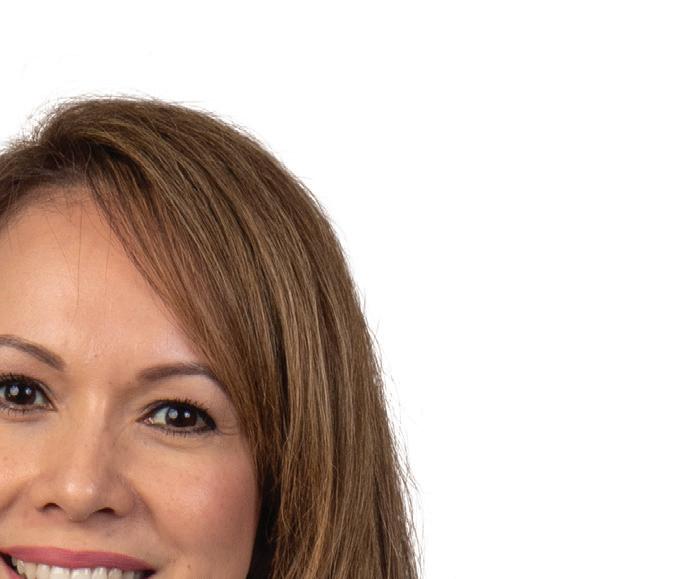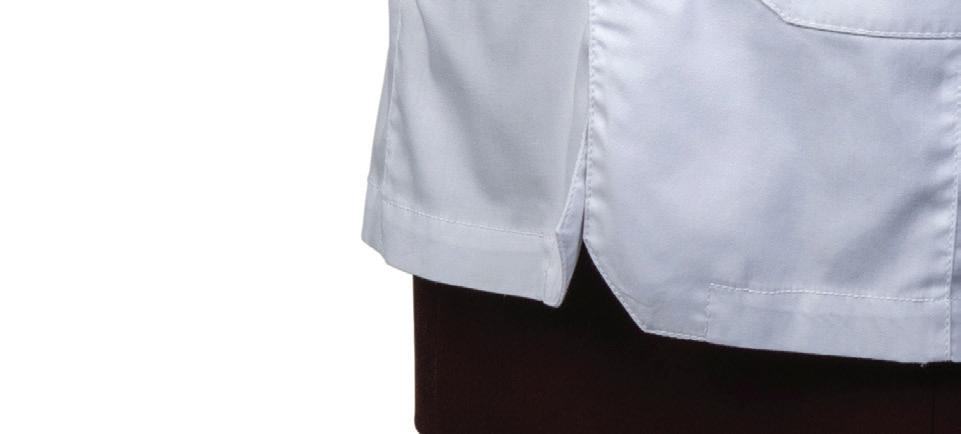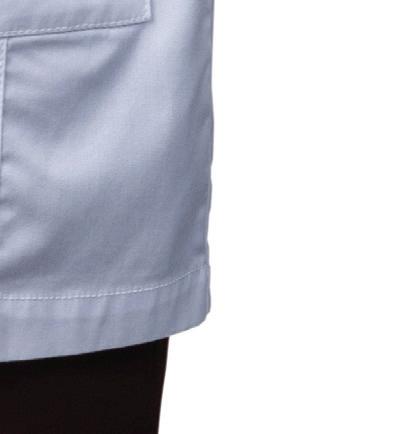'Everything was lost': Hurricane impacts students’ families

In Saint Elizabeth Parish, Jamaica, a father and son waited inside their family home as the category 5 storm, known as Hurricane Melissa, closed in the afternoon of Oct. 28.
Outside, a loud noise announced the hurricane’s arrival. The son, Kurt Chambers, peered outside and found the veranda torn off. Moments later, the entire roof was completely gone. The winds were so strong that he and his father, Lloyd, did not feel the rain.
The hurricane quickly devoured everything in sight and tore walls apart. The two men rushed to take refuge in the downstairs garage, climbing into their car to wait out the storm. When it was finally over, they emerged to find the whole house destroyed and everything lost.
Kurt and Lloyd are the uncle and grandfather of Andrew Chambers, a
freshman film production major at Southern. They were two of the thousands who experienced the devastating effects of Hurricane Melissa, which reached the southern part of the island around 2 p.m. With top wind speeds reaching 185 mph, according to PBS News, Hurricane Melissa became one of the strongest Atlantic hurricanes on record. The Weather Channel called it historic and catastrophic.
At the storm’s climax, 77% of businesses and homes were without power. According to NBC News, the estimated insured losses in Jamaica are between $2.2 billion and $4.2 billion.
According to the Guardian, Hurricane Melissa hit Jamaica’s agricultural areas, which lawmakers said could increase prices on food. The nation’s crucial tourism destinations were also hit, causing thousands of workers to lose their jobs.
Several Southern students said their loved ones have been affected by the hurricane. Sheldon White, a junior photography major, has family members who experienced the category 5 storm.
“My family did not have any losses [of
life] but suffered damages from flooding,” he said.
Ashauna Simms, a junior nursing major, also has family in Jamaica who were impacted.
“My [uncle’s and my aunt’s] homes in Jamaica suffered damage,” she said.
“Their roofs have almost been completely removed by the harsh storm. From what I’ve heard, all of my extended family is physically safe.” Simms provided the Accent with a statement from her aunt, Curl McFarlane.
“We lost all of our fruit trees, which is disappointing, but I’m thankful that my husband and I are safe and alive,” McFarlane stated. “It could have been
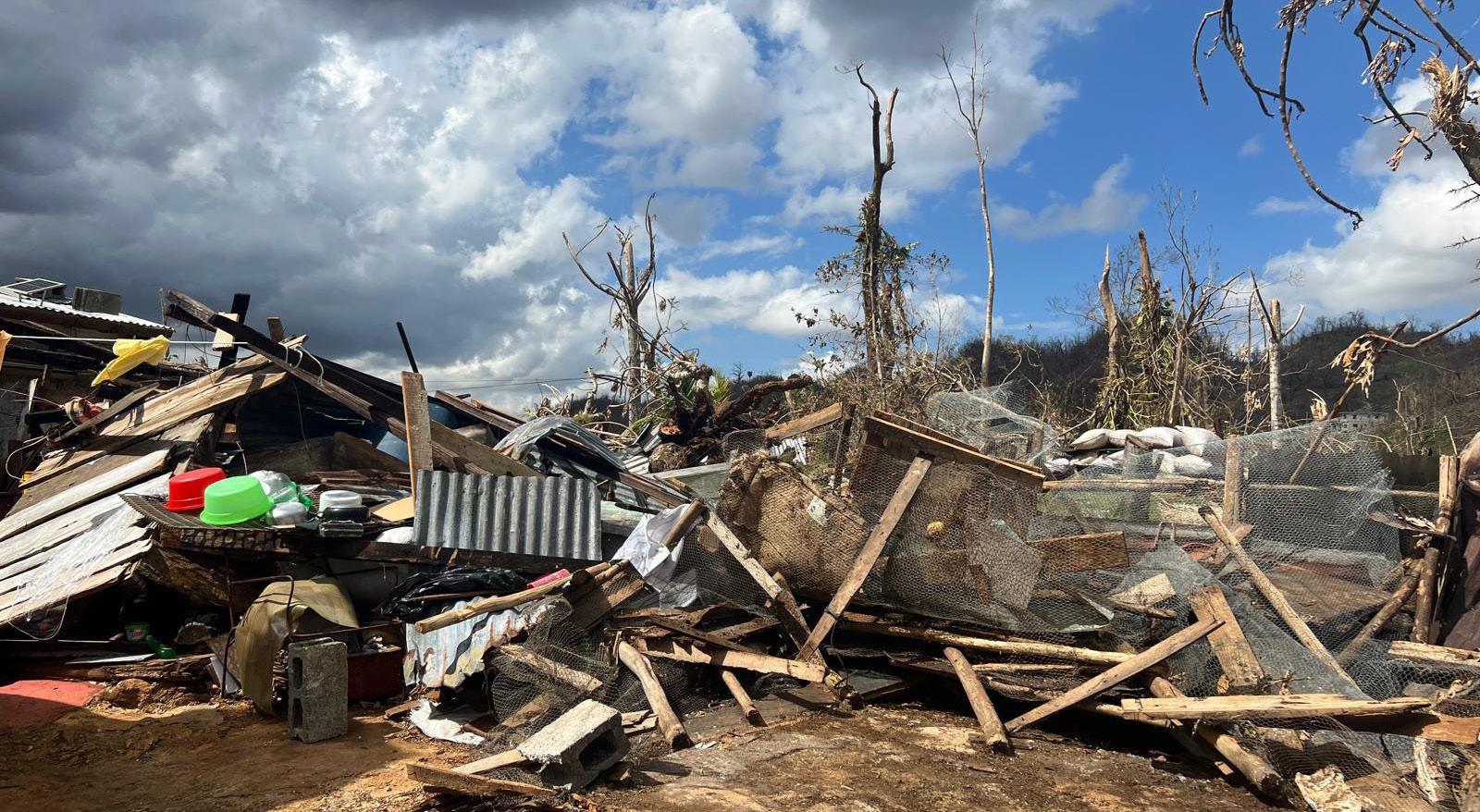
“Just knowing that they’re struggling and I can’t do a thing to help is really disheartening." - Chris Sandi
Southern’s School of Education receives national recognition for excellence
Lily Mutai Contributor
Southern Adventist University's School of Education, Psychology and Counseling received national recognition for its excellence in teacher preparation, earning the Frank Murray Leadership Recognition for Continuous Improvement from the Council for the Accreditation of Educator Preparation (CAEP). This award is given to 22 educator preparation providers (EPPs) each year.
"The award recognizes that during our CAEP site visit, we were found to have no areas for improvement or stipulation of things that had to be corrected," said Tammy Overstreet, dean of the School of Education, Psychology and Counseling. "It's considered a 'perfect score.'"
According to Overstreet, Southern stood out for gathering and applying data to benefit the program and its students. She also credited the department’s partnerships within the Southern Union of Seventh-day Adventists and Hamilton County, Tenn., as contributors to the achievement. Those partnerships provide settings where students can learn from teachers and practice in teaching environments.
"Those partnerships provide the clinical settings where our students can learn from expert teachers and practice their craft in environments where their growth is scaffolded and nurtured,” Overstreet said. “Our commitment to growing our students into day-one-ready educators was evidenced by the lack of areas for improvement.”
Overstreet noted that the
accreditors informed the department that they had earned the distinction immediately following their site visit. However, faculty members could not share the news until the official announcement at the Council for Accreditation of Educator Preparation Convention (CAEPCon) in September. She said the department spent years preparing for the visit.
“All along the way, we worked to ensure we were holding ourselves and our students to the high standards of the accreditor—but more importantly, to the high standards of our Creator,” Overstreet said. “We constantly prayed as we worked, and we collaborated effectively.”
Students in the program
expressed optimism about the award.
“It makes me feel like I chose the right school,” said Nina Montejo, junior education major. “I chose Southern because I knew it had a good program for my degree, so hearing that our department is being recognized is affirmation for my decision.”
Montejo said she believes the recognition is well deserved and that the department’s preparation is exceptional.
"The way our department prepares us for being in the classroom should be acknowledged,” she said. “Since freshman year, I've been out in the field observing elementary schools in the area. That in itself deserves recognition.”
Lauren Geigle, sophomore education major, said she was surprised by the achievement.
"I am surprised Southern is the only school in Tennessee to receive this recognition," Geigle said. "There are many schools with good education programs, but it makes me even happier to be a student at Southern pursuing a degree in education."
For Geigle, her favorite aspect of the program is the sense of connection.
“The professors care so much about the students while they’re at Southern and for their lives after,” Geigle said.
Overstreet said she believes this recognition will continue to elevate the program’s reputation.
“Other educator preparation programs in Tennessee already
seek out our faculty—especially Professor Katie McGrath, our director of accreditation and assessment—to learn how we approach assessment and accreditation,” Overstreet said. “We love knowing that our small school is known for excellence because it is due to God’s blessings. We see this as a way to bring honor and glory to His name.”
For future education majors, Overstreet has a clear message: “Come to Southern to learn how to teach. Our faculty will invest in your learning and success, and you will be poised for success when you graduate,” she said.

Email phishing targets Southern
Ken
Kelly Contributor
Southern Adventist University’s Information and Technology (IT) Department is raising awareness regarding numerous fake emails purportedly sent by campus officials with the intent of gathering sensitive personal information from students and staff.
IT flagged many emails as suspicious in a new phishing scam that began targeting the university on Oct. 21.
Phishing is the fraudulent practice of sending emails or other messages imitating reputable companies to get individuals to reveal personal information, such as passwords, credit card numbers and other sensitive information.
According to the IT website, Southern has had seven phishing campaigns that have targeted the university since 2017.
The emails involved in the phishing scam contained attention-grabbing subject lines intended to lead readers to click links to third-party sites designed to collect sensitive information.
See Phishing on page 3


Editor-in-Chief
The Accent encourages readers to write articles and voice their opinions. However, the views expressed do not necessarily reflect the opinions of the Accent, the Southern Adventist University or the Seventh-day Adventist Church.
For any questions, comments and article submission information, email the editor at haydenjkobza@southern.edu.
For all advertising inquiries, email alvajohnson@southern.edu.
Hurricane continued from page 1
worse, and I am thankful that the trees fell away from our house and that our car wasn’t damaged. Because of the damage to our roof, we had to deal with the furniture and clothes that got wet.”
Aunya Anderson, a senior health science major, spoke about the impact the hurricane had on her family.
“No lives have been lost,” she said, “but many of their homes are destroyed, and their church is destroyed, as well.”
While juggling grades and working in college, the added stress regarding the safety of his family has taken a toll on Chris Sandi, a sophomore media production major. He has been communicating with his relatives in Jamaica and learned that his uncle’s roof was ripped off in the storm.
“Since the hurricane, I’ve been dealing with an extra layer of stress,” Sandi said. “Just knowing that they’re struggling, and I can’t do a thing to help is really disheartening. We are pretty close to Black River, which has essentially been destroyed.”
The death toll has reached 32 in Jamaica, according to NBC News.
After passing through Jamai-
Phishing continued from page 2
Derek Sherbondy, associate director of IT, provided screenshots of two emails involved in the phishing scam. One of the emails requested that recipients verify their accounts, which were falsely described as being at risk of deactivation.
The second email described a part-time job opportunity with an offered weekly pay of $500. Both emails claimed to be from official university sources, with the latter claiming to be from job placement and Student Services.
Southern students reacted to the phishing scams with concern for their safety online.
ca, Hurricane Melissa hit Cuba, Haiti, the Dominican Republic, the Bahamas and Bermuda. The death toll in Haiti is at least 43, according to Haiti’s government.
The hurricane hit Bermuda late Oct. 30 and early Oct. 31 with a category 2 intensity.
Jordan Lightbourne, a sophomore mass communication major, said, “My family is in Bermuda, and they were affected by the hurricane mainly through a loss of power and internet for a while, but thankfully everyone is safe.”
Ahmya Peets, a junior art major, was texting her family when the hurricane arrived.
“They were just waiting for when they would lose power,” she said, “and they did, around 12 a.m. The next morning, most of the island was still without power. [There were] lots of branches down, some powerlines down, trees down, debris and low-hanging wires.”
Peets said everything has returned to normal for the most part in Pembroke Parish, Bermuda.
“They cleared the roads, fixed the wires and eventually restored power to everyone on the island,” she said. According to the U.S. Department of State (DOS), recovery efforts in Jamaica and the other affected countries are underway, with support coming in
Alessandro Yoxom, sophomore media production major, expressed the need for security.
“The scammers have gotten more intelligent in phishing students and faculty across campus,” he said. “I will admit and say, we need better security measures.”
Sierra Trombley, a junior graphic design major, was one of the many students that received a fake offer for a part-time job. In an interview, she explained her experience interacting with the phisher.
“The email originally offered a job, and I just asked if I would qualify,” she said, “and they offered without an interview or anything.”
According to Trombley, the email appeared suspicious
from the United States.
“President Trump authorized an immediate U.S. response, directing the Department of State to mobilize support for affected communities,” the DOS website states. “Within hours, Secretary of State Marco Rubio deployed a regional Disaster Assistance Response Team, including ur-
ban search-and-rescue teams, to assess needs and provide search and recovery assistance.
The State Department is collaborating with U.N. agencies, NGOs and host governments to deliver food, water, medical supplies, hygiene kits, temporary shelter and search and rescue support.”
As aid pours in, families in Jamaica begin to rebuild their lives. White’s second cousins and uncle have been able to resume work as of Nov. 4.
“They are bouncing back and helping others get back to normalcy,” he said. “I think about them, and wish I could help.”
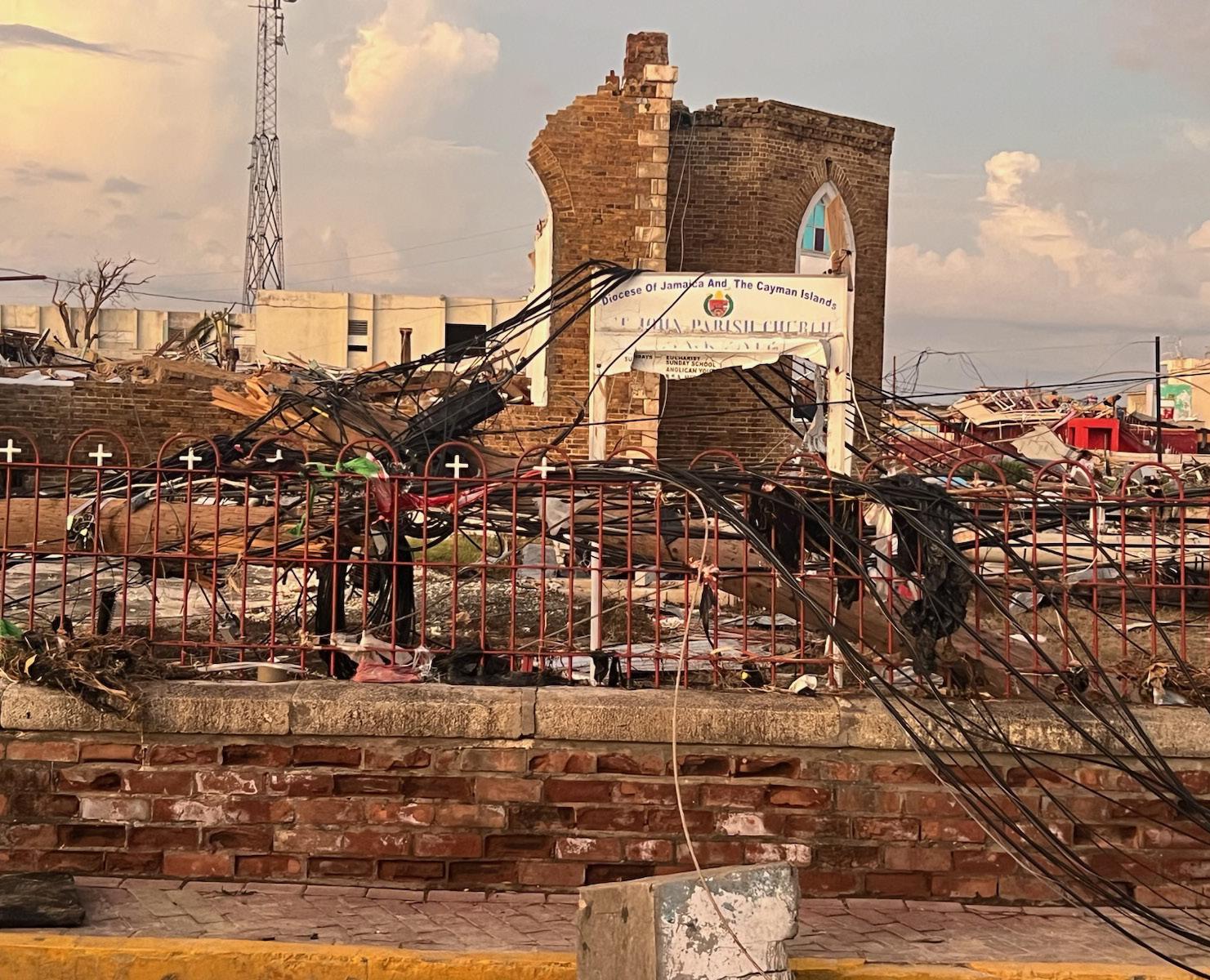
from the start.
“I felt like something was off about it,” she said, “but my initial instinct was to trust it because it came from my Southern email.”
Following her experience, Trombley said that she reached out to the IT department to express her concern.
“I was concerned that if anyone else got [the email], I don’t know if they would have fallen for it, so I emailed IT, and I didn’t get much of a response,” she said. “Then they sent a mass email a week later warning about it, but it would have been too late by then, so I hope no one fell for it.”
Jordan Lightbourne, sophomore digital media major, described the scams as “a very
serious thing.” He remarked that “it’s good that Southern’s identification process is able to negate the [scam emails sent] so far. I would like to see it be improved to zero percent.”
According to a statement from Sherbondy, the university is aware of the attacks, and IT is working to prevent more from happening in the future.
“On average, more than 500 malicious or suspicious emails are blocked each day through our anti-virus and anti-phishing systems,” stated Sherbondy. “Despite these protections, attackers continually adapt their methods to try to bypass automated defenses.”
In the statement, Sherbondy also stressed the importance of reporting suspicious emails.
“When a suspicious message reaches a user’s inbox, it can be reported by clicking the ‘Report Suspicious' link in the email or by forwarding it to phish@ southern.edu, where it will be reviewed and the user will be notified whether it is legitimate,” stated Sherbondy.
Sherbondy also wants to assure students that IT is continuing its efforts to ensure a safe digital space for the Southern community.
“Information Technology remains committed to protecting the university’s digital environment and continues to enhance its security measures to safeguard student and employee information,” he said.
Daily Crime Log shows spike in theft for 2025
Ken Kelly Contributor
A review of this year’s crime reports indicates a spike in the number of theft-related reports on Southern Adventist University’s campus.
Theft has been the most frequently reported campus crime in 2025, according to the Daily Crime Log provided by Campus Safety on Oct. 15. Residents and visitors have reported a total of 29 thefts and theft-related incidents on university property, according to the log. It showed that there were more
reported thefts in the residence halls than any other place on campus this year.
Approximately 75.86% of reported campus thefts occurred in residence hall dorm rooms, laundry rooms, and storage areas combined. Single incidents at an academic bike rack, academic building, off-campus residence housing, on-campus residential housing and the outdoor track each accounted for 3.45%. Thefts at Hulsey made up 6.90% of total cases.
In an email to the Accent, Shawn Haas, associate director of Campus Safety, noted that
the trend for reported thefts had been on the decline from 2022 to 2024. However, he also acknowledged the spike in theft reports for 2025, 17 of which he attributed to a resident assistant stealing items from dorm rooms in Talge Hall.
“We have had zero reports from Thatcher South this year,” Haas stated. “We have had 18 reports from Talge Hall this year. This counts the 17 thefts I mentioned in my earlier email regarding the suspected RA.”
According to the daily crime log, other incidents were also reported inside the residence
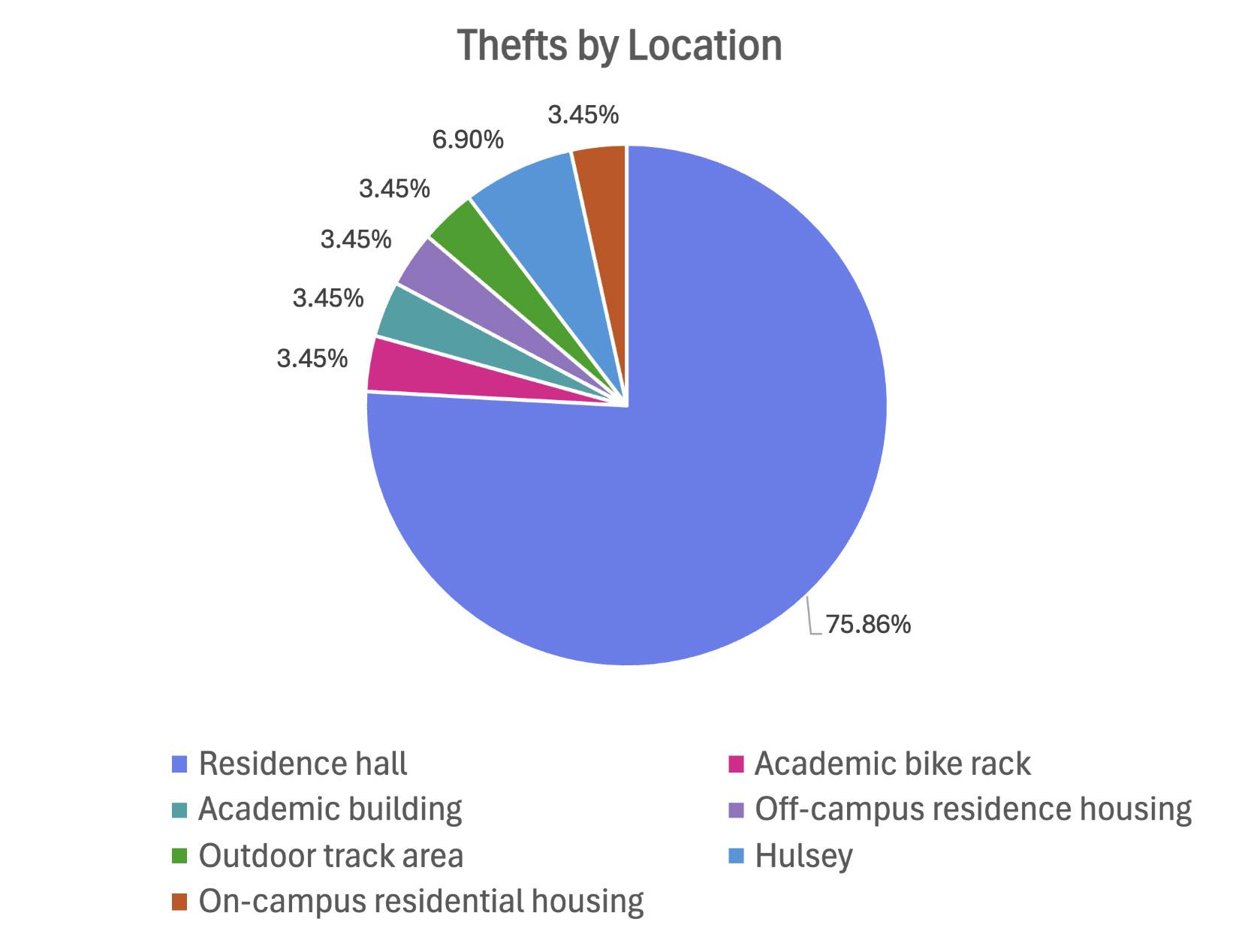
halls, including two laundry thefts and one storage room theft.
Among the reported campus thefts were two incidents from the Hulsey Wellness Center.
One involved the theft of a golf cart by a minor and the other described three juveniles who stole items from a vending machine, according to the crime log sent by Haas.
Other crime reports on campus included two unspecified academic buildings. According to the Daily Crime Log, one report mentioned personal property taken from a bike rack outside of an academic building, and the other involved a theft that occurred after an event was held.
The listed thefts have been marked as closed in the Daily Crime Log.
In total, 21 thefts were reported inside Talge and Thatcher Halls. However, the Daily Crime Log also listed reported thefts from other campus housing. This included one report from Southern Village and another from an undisclosed off-campus housing location.
According to an email from Lisa Hall, dean of students, the most common items that students report as missing are articles of clothing from the laundry rooms.
Hall described the process for reporting theft in the dorms.
“Deans listen to all reports about theft on campus and then generally recommend calling Campus Safety to doc-
ument the report,” she stated. “Campus Safety and/or the student [will] make the decision whether to call the Collegedale Police or not.”
Despite this system, students expressed mixed feelings about the overall security of their personal items.
David Kochanski, a freshman nursing major and Talge Hall resident, said he has not had anything stolen from him but expressed concern over rumors of missing laundry items from Thatcher Hall.
Daisy Morgan, a junior strategic communication advertising major, described an experience where her laundry was stolen in Thatcher Hall.
“It stressed me out because I lost about half a load of laundry,” Morgan stated, “and the RA’s and deans did nothing about the situation.”
Ersie Herelle, a freshman nursing major, shared her thoughts on accountability.
“I don’t really think there is much the campus can do,” she said. “We are adults and must be accountable for our items.”
Hall described crime prevention efforts in the residence halls to minimize thefts and make residents feel safe.
“Our door locking system allows tracking,” she said. “We remind students to not leave personal items in public spaces, stay with their laundry and not tape or prop room doors open, giving others access to the room.”
COLLEGEDALE NEWS
Editor's Note: The Southern Accent has produced a two page Collegedale News section this issue as part of a national initiative to enhance community news coverage. The local effort, led by Southern's School of Journalism and Communication in conjunction with the Center for Community News (CCN) at the University of Vermont, places student journalists at the forefront of addressing the news desert crisis, a phenomenon caused by the decline of newspapers in local communities. The Accent believes local news is vital to a thriving democracy, and we remain committed to reporting about important issues, novel occurrences and interesting people in the greater Collegedale area. We will publish this special section in five issues of the newspaper this semester. To submit tips or press releases, go to https://southern-accent.org.
Freedom Festival switches event coordinator in preparation for the United States' 250th birthday
Leif Bromme Collegedale Reporter
On Nov. 3, the Collegedale Board of Commissioners granted planning rights to Charlotte Grace Events for the Collegedale Freedom Festival, a popular Independence Day celebration. Friends of the Festival, the former coordinator, has been replaced ahead of next year’s 250-year anniversary celebration, interrupting a multi-year partnership.
The Freedom Festival is typically held at The Commons on July 3, incorporating food trucks, children’s activities, musical performances and a firework display. The 2025 Festival included a pie-tasting contest, a presentation of the Quilts of Valor to local first responders and additional festivities at the Veterans Memorial Park. Past musical performances included the East Tennessee Symphony Orchestra and singer Ricky Skaggs, according to The Chattanooga Times Free Press.
At a recent Commission Meeting, Christina Clark, of the Collegedale Parks and Recreation Department, requested permission to grant planning rights for the upcoming Freedom Festival to Friends of the Festival. Though Friends of the Festival’s bid of $34,850 was over $10,000 more than Charlotte Grace Events’ $23,000 offer, she emphasized the importance of celebrating the significant milestone in America’s history with the appropriate festivities.
“With it being the 250th anniversary and the commission requesting a larger production, we’d like to provide [a coordinator familiar with] doing music festivals and being able to reach out and work with other musical acts,” she said.
While arguing that their experience with entertain-
ment-forward events was superior, she also pointed out that the Friends of the Festival had no competing events on July 3.
According to Clark, Charlotte Grace Events also has an event slated with Catoosa County fireworks on July 3.
According to News 12, Charlotte Grace Events coordinated a Banana Pudding contest last May, as well as other city events.
After Clark’s proposal, Commissioner Laura Howse brought to light festival complaints made the previous year.
“The sound was entirely too loud,” she said. “Everyone on Heathwood and Glynn Downing could hear it.”
Vice Mayor Tonya Sadler also raised issues with their marketing during the 2025 Freedom Festival.
“They had $7,500 for marketing and photography. We were charged that last year,” said Sadler. “Did you remember the graphic they used? It was terrible. I also don’t remember any other marketing done by the festival. Our own people had to promote it.”
Commissioner Debbie Baker argued in favor of the Friends of the Festival, trusting the results of their higher price point.
“I’ve done this a long time,” she said. “You have a tendency to get what you pay for.”
As discussion continued, Baker also highlighted that there was praise for last year’s festival along with the complaints.
Charlotte Grace Events owners Tiffany and Jeff Miller attended the meeting Monday night and advocated for their bid.
“It’s simply a matter of having more staff," Jeff Miller said. "We will be hiring more folks to help that day, [and] we don’t foresee that as being an issue.”
Their comments and responses helped alleviate some
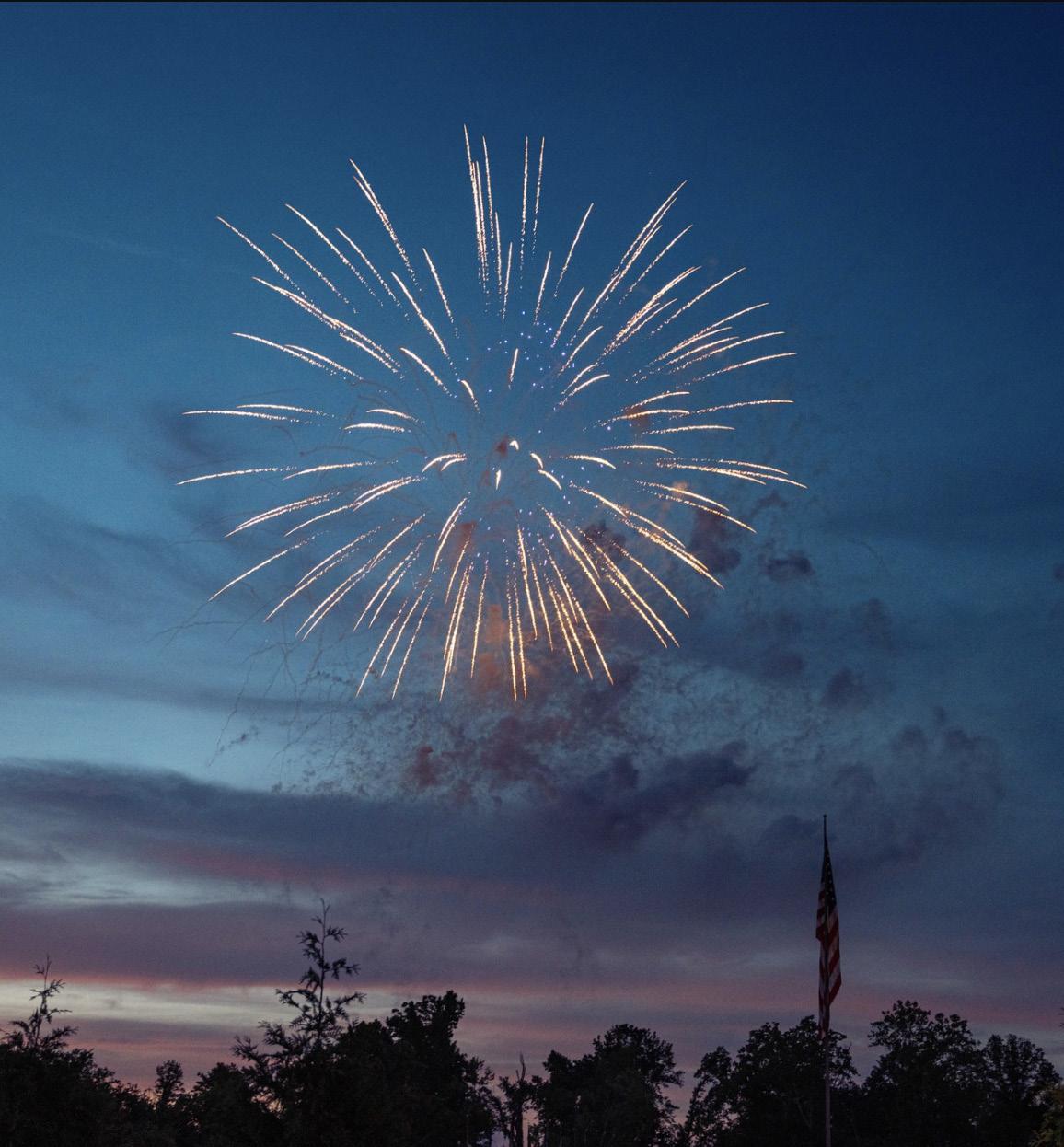
commissioners concerns about staff shortages and company capabilities.
“I have good faith in them,” Sadler said. “They showed up to a meeting that they probably weren’t invited to. They probably took it on themselves to look at the agenda.”
Howse ended the deliberation by making a motion. Though the motion was not seconded immediately, Sadler encouraged the Board to consider the reservation window for vendors.
“We’ll [only] have five food
trucks if we wait,” she said.
After considering last year’s mixed reception, the higher price and the competing bidder’s encouraging proposal, the Board of Commissioners officially decided to counter Parks and Recreation’s recommendation and provide planning rights to Charlotte Grace Events.
Commissioner Johnson greeted the change with hesitance.
“Sometimes it’s just a little scary to change vendors,” he expressed.
Still, the Board of Com-
missioners expects a vibrant Freedom Festival for America’s 250th birthday. Charlotte Grace Events’ proposal includes a patriotic photo booth, craft vendors and possibly a watermelon-eating contest—each a new attraction that Howse hopes will encourage Collegedale residents to show up for the celebration.
“I think the Freedom Festival will continue to have the small-town charm we all enjoy,” said Howse, “but with some fresh touches under Charlotte Grace’s coordination.”
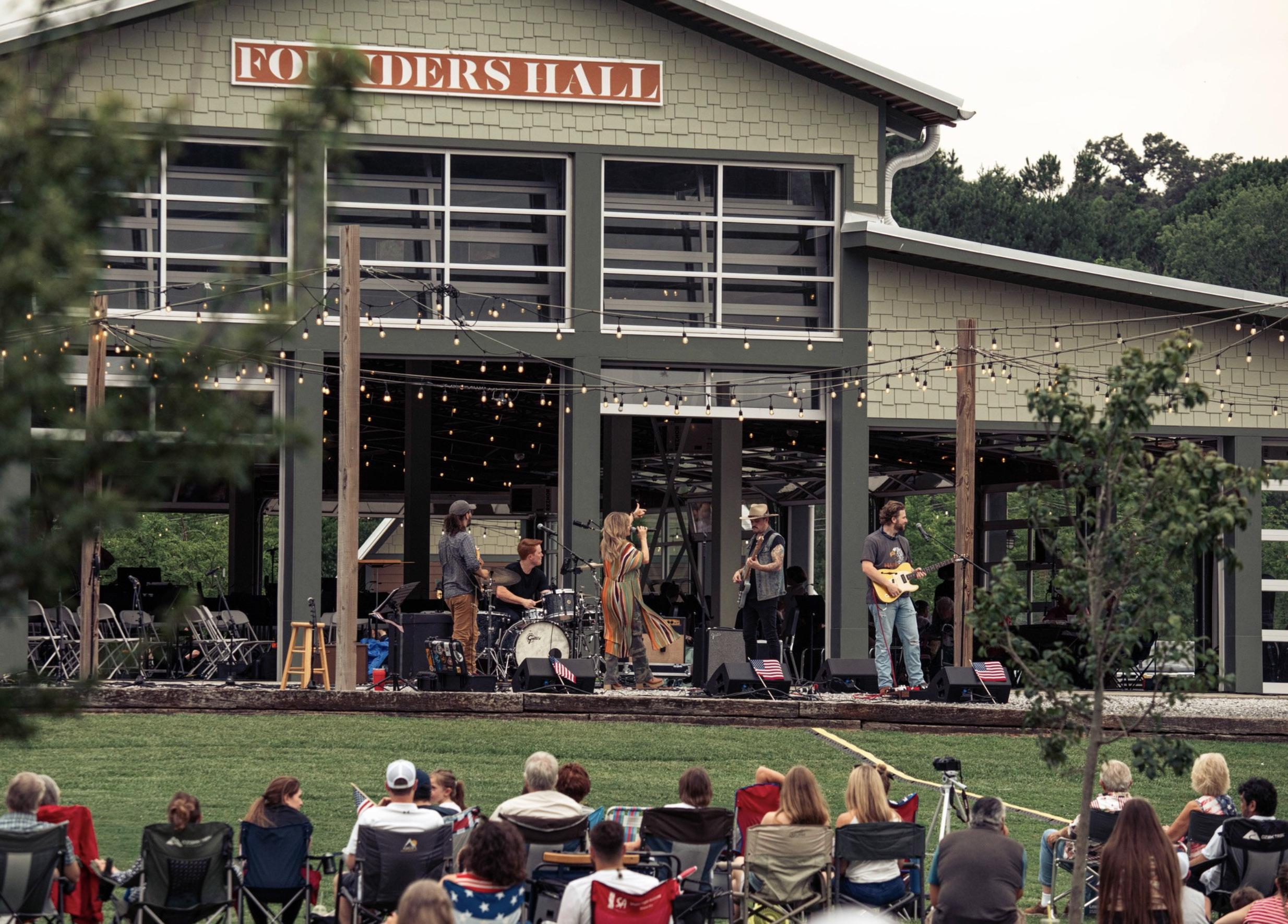
COLLEGEDALE NEWS
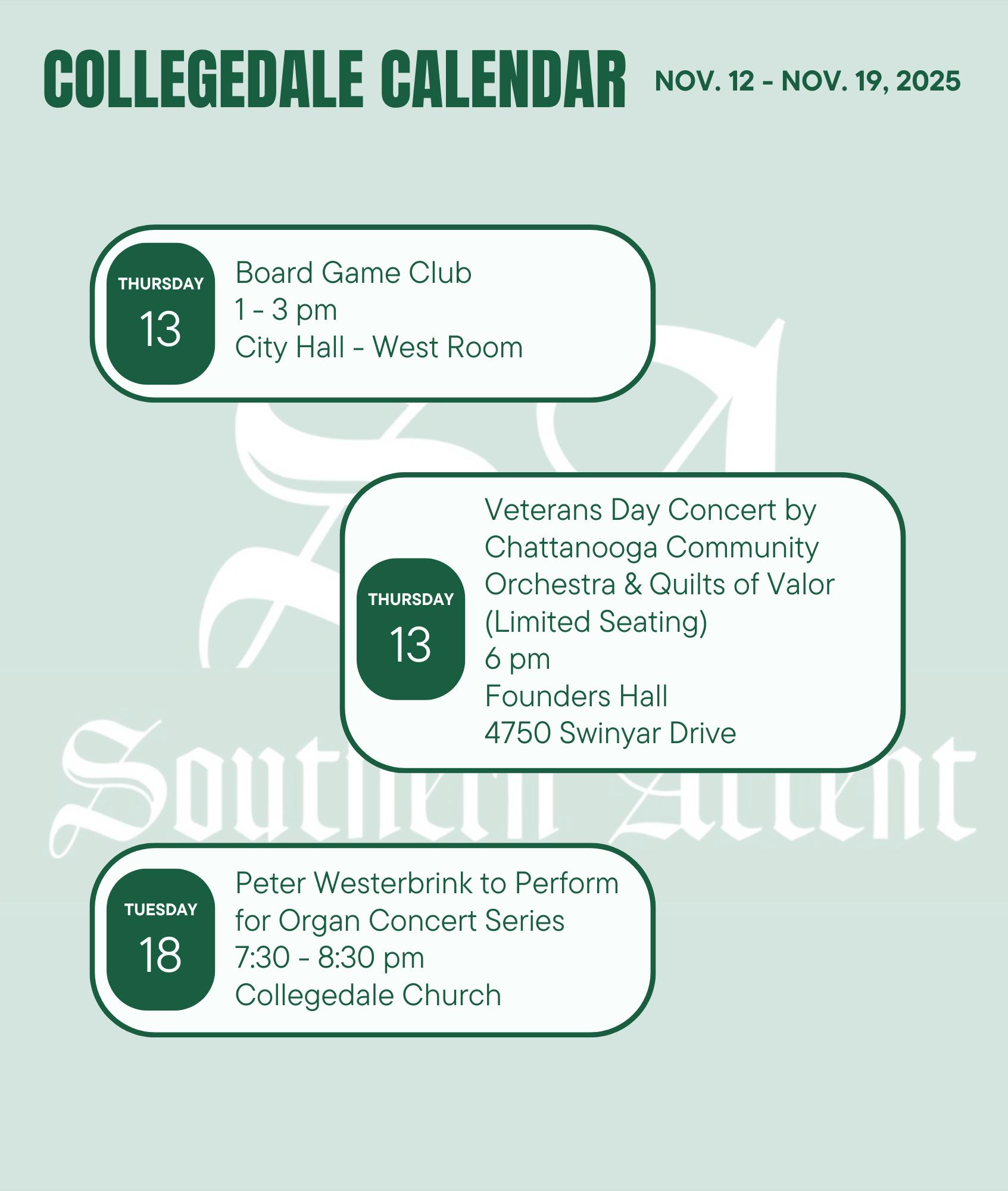
Ask the Accent!
Dear Southern Accent,
There is no parking at Mabel Wood Hall, not even for my 8 a.m. classes, when there used to be nobody there last year. Between the boys dorm overflow parking, construction workers using the parking lot, and Brock people who think that our parking lot is closer to their building than the radio station parking lot is, we humble music majors and minors and ensemble members have nowhere to park at the most crucial moments in our lives (aka not missing an 8 a.m. or not showing up to rehearsal late). Please spread awareness about our plight! :(((((( - Anonymous Reader
PSA
Last week, an event was listed in the Collegedale calendar during Sabbath hours. The Southern Accent does not promote events that occur during the Sabbath if they are not church-related. As a publication sponsored by an Adventist institution, we remain committed to reflecting the values of the Seventh-day Adventist Church in everything we do.
Are questions keeping you up at night? Too scared to go to vespers because you don’t have the guts to ask out your crush? Is the CIA stalking you?
Scan the QR code to let us know!
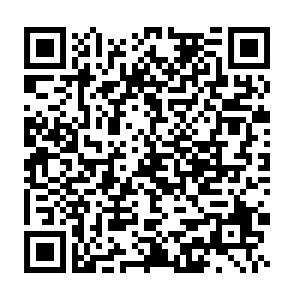

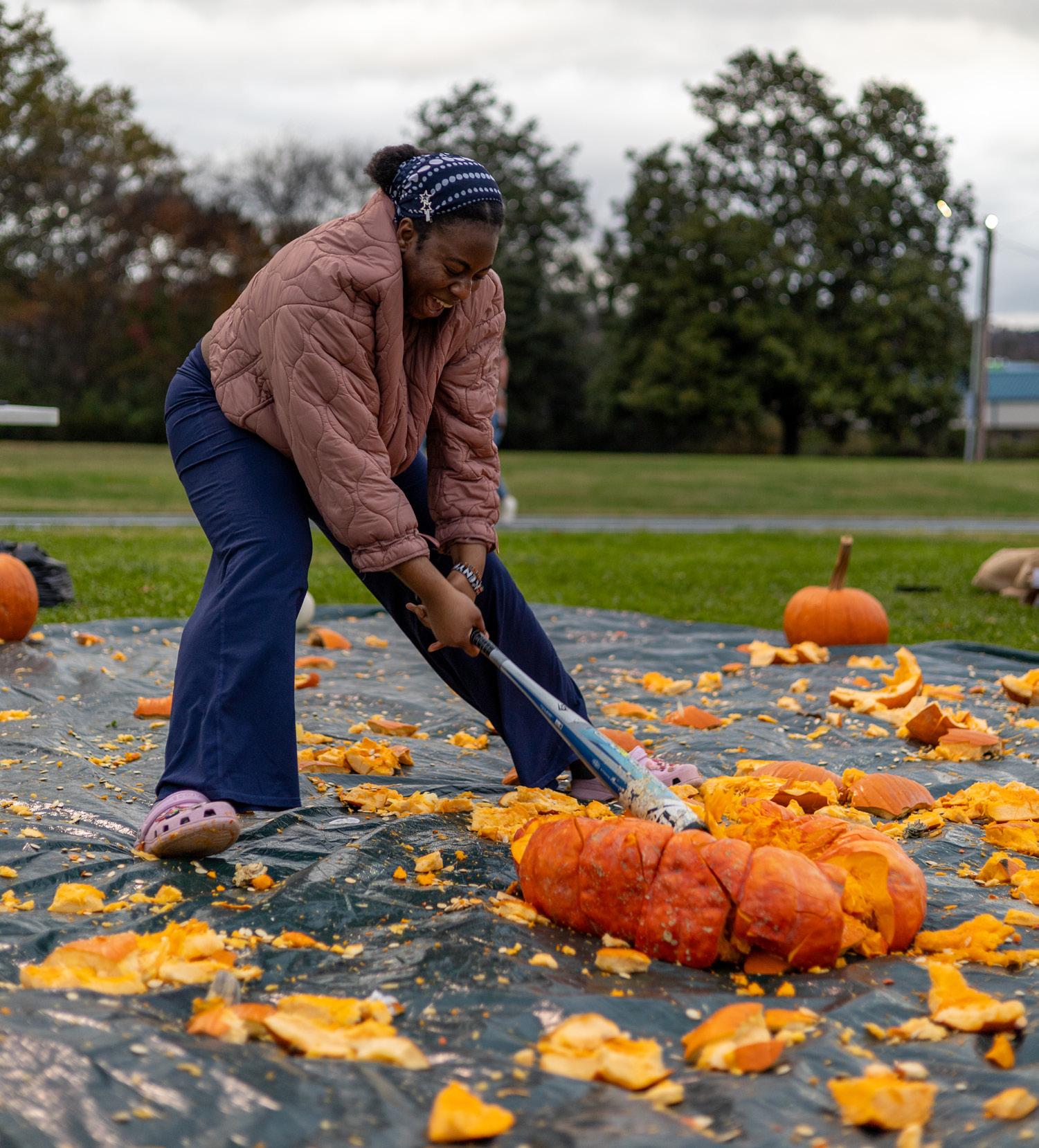
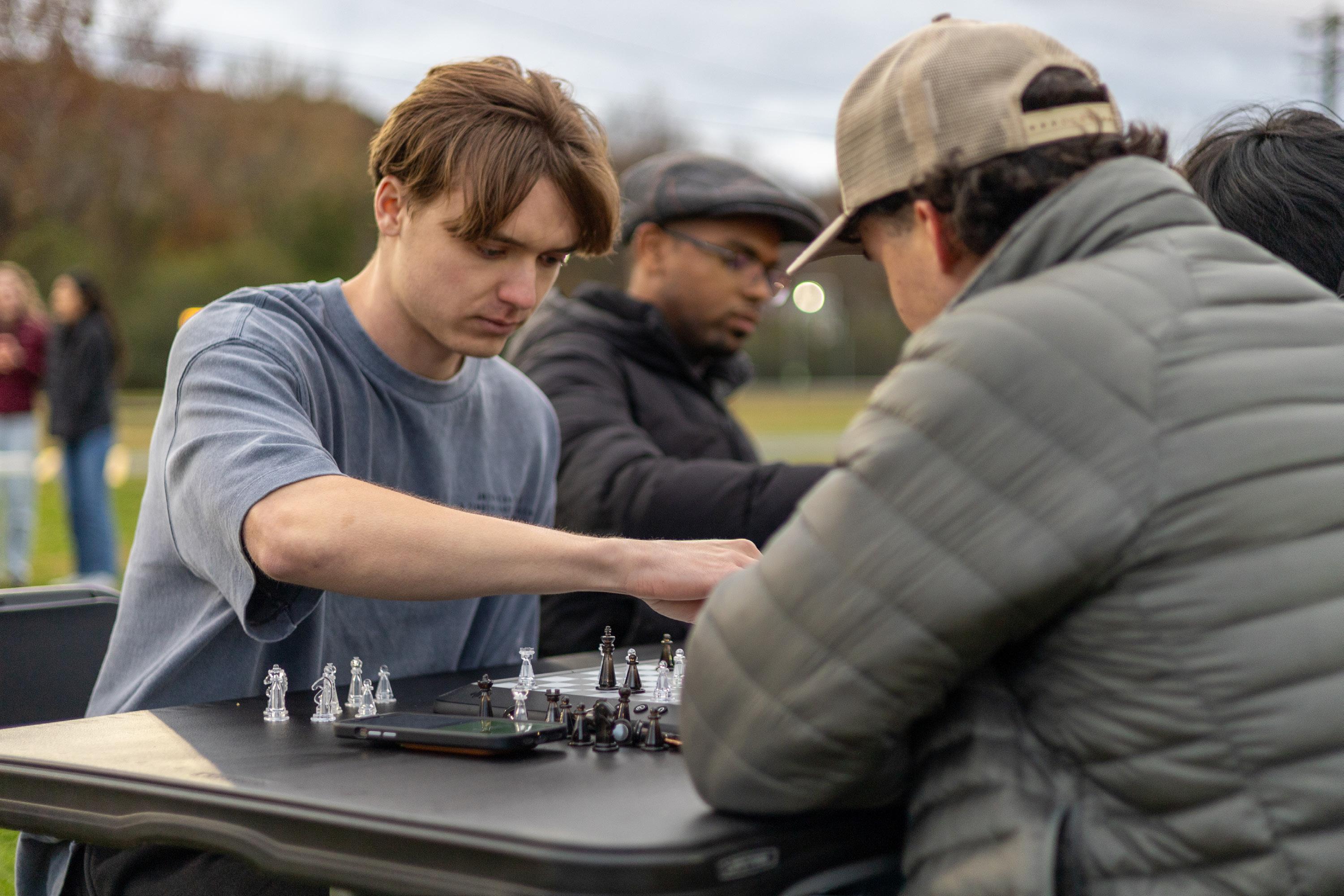

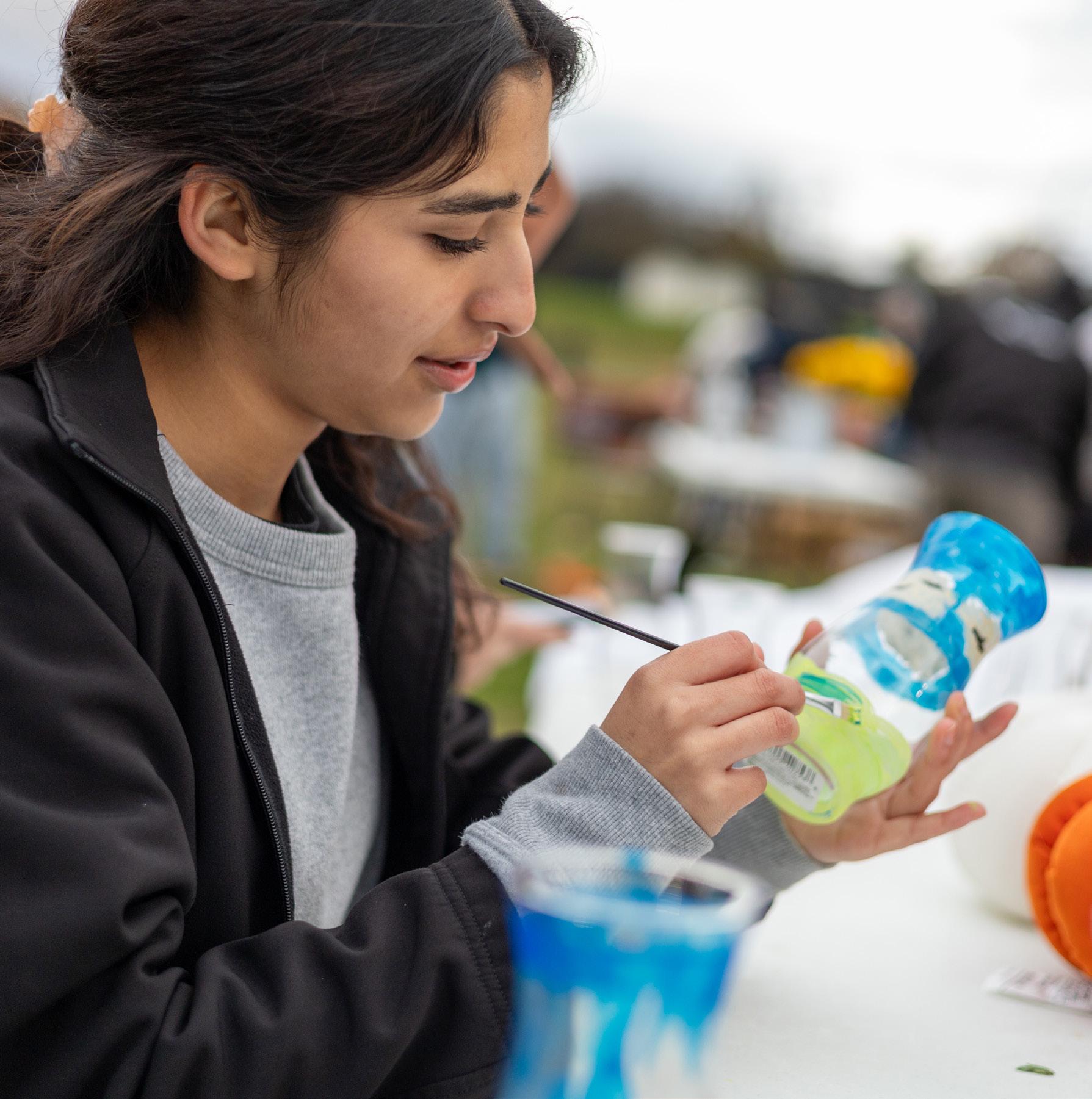
Johanne Mendoza Contributor
As we experience life, understanding our identity becomes increasingly important. We may start by diving into our familial roots or asking our parents and grandparents about their past to unearth insights into our heritage.
These discussions often reveal family legends and narratives that serve as rich reservoirs of self-discovery.
Family narratives hold a special place in our hearts, particularly during times of adversity. They can provide comfort and
pride, anchoring us amidst life’s storms.
Knowing where we come from instills in us a sense of resilience and belonging in the face of challenges. Family legends remind us of our roots and affirm our place in the intricate tapestry of existence. That’s why while we journey through life’s twists and turns; these stories can offer strength.
In her article “Ancestor Trouble,” published online at Psyche.co, Patricia Olsen explores how the narrative we tell about ourselves, particularly from family legends, contributes to
our sense of identity. Jonathan Adler, a psychologist and academic, says that storytelling plays a major role in shaping our perception of our lives.
The ability to tell a compelling story is an excellent skill, because it will help you write one that rings true for yourself and appeals to others. Olsen shared her own experience of relying on a family story about being a descendant of famed explorer Meriwether Lewis to cope with a challenging childhood. This narrative created a sense of pride and provided comfort amid familial turmoil.
Olsen also shared the story
MENTAL HEALTH
of Michael Harper, who found solace in believing he descended from Massachusetts Bay Colony governor John Winthrop. Discovering the truth behind this family legend validated his sense of identity and pride.
However, Amy Morin, a clinical social worker, cautions people not to derive self-esteem only from lineage and emphasizes the importance of personal attributes above legacy. By identifying these attributes, one can find a new narrative grounded in resilience.
In his 2020 article “Disrupt Your Own Narrative,” high-per-
formance psychologist Michael Gervais shares lessons from eight female business founders and executives, who found that while it’s important to consider feedback and alternative perspectives, we need to focus on what is within our control.
It is important to take control of our own narratives, despite others’ attempts to define who we are. Narrative therapy empowers us to reshape our understanding of ourselves through storytelling.

It is important to take control of our own narratives, despite others’ attempts to define who we are.”
Exploring family narratives for belonging SPORTS
Crowned champions in 3v3 tournament: The Moggers and the Average Joes secure victory
Matthew Taylor Sports Editor
The Iles PE Center was filled with energy as Southern Adventist University hosted its annual fall intramural 3-v-3 basketball tournament on Saturday, Nov. 8. From the sidelines, a crowd of students and fans watched as teams battled on the court.
After a night of fast-paced, high-energy competition, the Moggers emerged as champions in the men’s division, while the Average Joes completed a dominant undefeated run in the women’s bracket.
Intramural Director Troy Walker praised the event’s success.
“Great tournament,” Walker said, noting there was good sportsmanship throughout the evening.
The spirit of positive competition is a key goal for the intramural program. Walker, who was pleased with the “very good turnout” from fans, also expressed a positive outlook for the event’s future.
“[I] would hope to see a few more women’s teams next year,” he commented, highlighting an area for growth.
In the women’s division, the team Average Joes, captained by Grace Peterson, a junior nursing student, established themselves as the team to beat. They put on a commanding performance, navigating the bracket to finish the tournament with a perfect, undefeated record.
According to Peterson, their consistent success was built on a foundation of team chemistry, since several members of the team had already played together last year. However,
their championship run was not without hurdles. The team’s main challenge, she noted, was purely physical.
“I think the biggest challenge was overcoming the fact a lot of us didn’t play actual basketball recently and so just getting tired easily and aching bodies,” Peterson said.
To counter this, the team relied on strategy.
“We had a subbing system to help with it,” Peterson explained. That strategy, combined with their teamwork, was enough to secure the championship.
“I think we had really good chemistry... and [were] able to execute some plays we talked about,” Peterson said. “It was just really fun to play with everyone.”
The runners-up in the women’s bracket were Alley Oops, captained by Yunis Balboa, a graduate student of Clinical Mental Health Counseling. The team fought hard through the bracket to secure their spot in the final game.
The men’s division featured a large bracket that tested the resilience of the eventual champions. Team Moggers, led by captain Orlando Lopez, a senior business administration major, had lost to the finalists, We’re Washed, earlier in the tournament. This meant they had to fight all the way through the loser’s bracket and, upon reaching the final, had to defeat the undefeated We’re Washed team twice to claim the title.
According to Moggers teammate Yumin Joe, a senior health science major, the marathon of games had taken its toll, and the team nearly conceded.
“To be honest our team was
originally down to just lose on purpose because we were all very tired and I was cramping up on my calf,” Joe said.
The turning point, Joe explained, came from a team huddle.
“Once the game started, we came into a huddle and told each other that it would be so much more satisfying if we won two games in a row to win the championship,” he said. “So, we told ourselves we should stay composed and play smart... and rely on our offense to win it.”
The team also faced an external challenge.
“Our biggest challenge was definitely the crowd— as many people were cheering for the other team to win,” Joe said.
In the end, he credited his team’s supporters for helping them push through the exhaustion.
“I think the key to our success was our friends and fans that encouraged us to keep playing when we were tired,” he said. “And of course we think God played a part in making
sure none of our teammates got injured and played with the mentality to play for him rather than ourselves.”
The 3-v-3 tournament highlighted the campus’s thriving intramural sports program, providing another successful night of community and competition. The event underscored the program’s ability to bring students together, not only to compete, but to display sportsmanship and enjoy a break from the academic rigor of the semester.

You should attend a small church OPINION
Asher LeVos Contributor
I grew up in a small, multi-generational church. This church, which was once a house, is located in the beautiful foothills of Colorado, with a congregation few in number, yet dedicated.
This is a church where the members know each other’s names and microphones are often unnecessary. For every major life decision, every little praise, every life-altering moment, the Aspen Park church is there. This small church is not just a service; it’s a community and family.
For college students, finding a church community is important, yet it can be overwhelming. Perhaps you have never attended (or thought of attending) a small church. You should. Many offer strengths in connection, engagement and involvement.
Small churches can enrich your life by providing connections that would otherwise be unlikely. For example, from an early age, I regularly engaged in conversations with older adults, asking questions to hear their stories and telling them tales of my own. Many of the older people in my home church I regard as “bonus grandparents” who are rich in life experiences.
Seven-year-old me loved asking questions about their childhoods. I heard stories of a young Adventist girl living in World War II Germany and stories of a young boy whose father was a World War I veteran. The members of my small hometown church offered
weekly advice and words of encouragement, which I would have been less likely to receive, had I not been attending a small church.
Belonging in a welcoming, family-like church enabled and empowered me to ask questions. It shaped much of who I am and taught me to approach every person with curiosity.
Even now, as a college student, it is encouraging to know I am a part of a loving church family back home that regularly prays for me. I hope that everyone, Southern students especially, can feel a similarly strong sense of community in their church family.
For college students who may not have a community outside of fellow students, small churches offer a closer congregation, making it easier to develop intergenerational relationships. In a 2025 article published by the Journal of Mental Health and Aging, the author states, “Strong intergenerational connections can lead to more cohesive and compassionate communities.” These interactions aid us in better understanding differing perspectives, which allow us to become a more inclusive community in Christ.
Engagement should be central to every worship experience. In recent vespers and church services, I paid special attention to those around me. One thing caught my eye: smartphones. While I am by no means offended by the sight of a phone, I couldn’t help but notice the large number of people my age who were disengaged. I, too, fall into passive attendance from time to time
RELIGION
as my phone’s notifications—an ever-present distraction—successfully divert my attention.
When I become disengaged, it is often because I feel more like an attendant than a participant. While I do believe that spiritual blessings can be obtained regardless of a church’s size, a particular strength of the small congregation lies in its energetic engagement and interaction with anyone walking through its doors.
In my experience, members of a small church will envelop you in a warm embrace, showing a special interest in you. In small churches, people see you. There is something extraordinary about the leaders of a small church welcoming you from the front by name.
Small-church communities facilitate engagement. There is so much to gain and to give in a small church. No matter the church, individuals ought to feel valued as active, engaged participants in worship.
Allison Grundy, a senior business administration student who attends “The Well,” commented on her experience participating in a smaller congregation.
“Other college students could benefit from joining a smaller church because they may be able to connect with more people on a deeper level,” she said. “At a smaller church, it’s easier to become familiar with others in the congregation and meet new people.”
Highlighting why she values small churches, Grundy said, “In my experience, smaller
churches make me feel more involved, and I feel more likely to come back due to the sense of community I feel.”
Small churches value young people who contribute their time and spiritual gifts. In Scripture, “church” is characterized as an assembly of believers in Christ. Romans 12:4-5 says, “For as we have many members in one body, but all the members do not have the same function, so we, being many, are one body in Christ, and individually members of one another.”
Christ invites us into community with one another, calling us to make use of our spiritual gifts. What spiritual gifts do you have, and how can you contribute to your church community?
I write this not to condemn large churches or well-produced services, but to emphasize the relevance of the small, humble church culture. As college students, valuing smaller congregations is important. Feeling connected, engaged and involved in your congregation is vital. When valued, the small church offers this engaging form of community. If we passively come and go from services, we forget the true purpose of church. Church is intended to provide a community in Christ.
Church is not a building or a service; church is a body of believers. The people are the church.
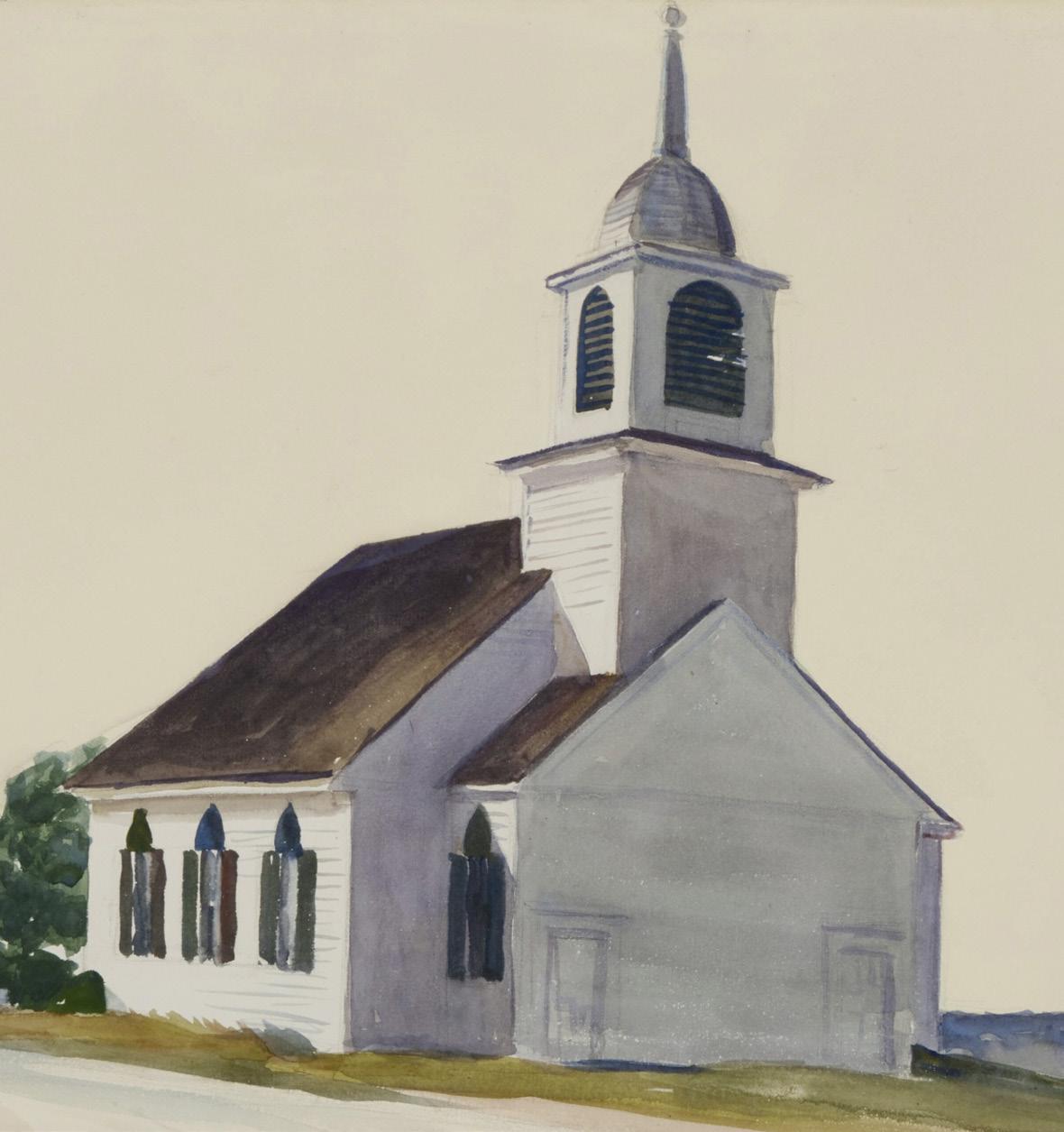
The sweetness of pain: My story with Type 1 Diabetes
Juan Mendez Contributor
HIGH—Over 600. That was the reading on my friend’s glucometer, right after she tested my blood sugar. I had no clue what it meant, but it didn’t sound good.
“Is that bad?” I asked cautiously. In hindsight, I’m amazed at how well she kept her composure.
“Yes, that’s very high,” she replied. “You need to go to the ER right away.”
And that’s how I found myself spending the Sabbath before my 15th birthday surrounded by beeping machines, lights and muffled voices, connected to an insulin drip IV that would save my life.
That Sabbath two of our friend’s sons were getting baptized. Because of the COVID-19 pandemic, we hadn’t seen them in a while and were really looking forward to the baptism. When my mom texted them congratulations and explained why we couldn’t make it, their mom then offered to test my blood sugar after church, as her own son had Type 1 Diabetes (T1D).
It was her understanding of the urgency of the situation and her prompt action that saved my life. When I got my blood sugar tested at the hospital later that day, it registered at 689 mg/dl (100 is normal, 70 is low, 180 is high and 300 is extremely high).
Life after my diagnosis with T1D was certainly harder: There was stress about medical supplies, insurance and high and low blood sugar. I was learning how to give and receive 4+ shots per day, weighing everything I ate, needing a second shot if I wanted seconds and forgetting insulin on a weekend trip and having to drive hours to pick it up.
There were also many other aspects I can’t remember. But through it all, I could see God teaching me, growing me and drawing me closer to Himself.
A verse of Scripture became precious to me: “Therefore be patient, brethren, until the coming of the Lord. See how the farmer waits for the precious fruit of the earth, waiting patiently for it until it receives the early and latter rain. You also be patient, establish your hearts, for the coming of the Lord is at hand” (James 5:7-8). This verse reminded me to trust God in my suffering and to focus, patiently and expectantly, on His soon return, when my corruptible body would become anew.
Although I’ve suffered nowhere near as much as many people, God has used diabetes to open doors for me to understand others’ suffering more. God gave me what I was able to bear—according to His promise in 1 Corinthians 10:13.
I’m glad about my experience with T1D! I’m glad for the opportunity it’s given me to trust God more. I’ve learned to be more content with God’s will and less content with this world. And I’m thankful for Jesus, who didn’t merely say “Poor Juan,” but came and experienced the suffering for my sin so I could have a new life— both physically and spiritually. But my gratefulness for T1D has skyrocketed in the last week, faster than my blood sugar ever has. I’m currently a student missionary with AMOR Projects in Pucallpa, Peru. This past Thursday, we had our first mobile clinic in a remote native village. I work in the department called Atencíon Integral, where we discuss patients’ struggles, give them encouragement and pray with them. And I wondered how could I empathize with and encourage
them through such hard times?
Over and over again, I found myself turning to my experience with diabetes. I would share with the patients how God had turned my trial into a blessing and how He could do the same for them.
Just a few hours ago, the doctor called me in to talk with a young man named Italo. He’s recently married and just joined the SDA church. He was sitting on a bed, an IV running into his vein—panicking because of his recent diabetes diagnosis.
So, I began to share my own experience with diabetes with him. I shared Romans 8:28 and the story of Joseph and his brothers, how God would use for good whatever Satan meant for evil. I told him about Philippians 3:10, and how it was important to know Christ not only in the power of His resurrection, but also in the fellowship of His sufferings. I told him the promise of God’s sufficient grace in 2 Corinthians 12:9, and how it was in suffering that we learn to lean on God’s strength instead of our own feebleness. And I pointed out that without pain in this life, we would become content here. Diabetes could be a shared reminder of our desire to go to Heaven where there would be no more sickness or death.
With each thought I shared, hope flashed in Italo’s eyes. At the end of our visit, I prayed for him. And I left thinking that even if all the pain and struggle of the last five years had been for the sake of encouraging just that one despairing soul, it was worth it.
I don’t know what trial you might be going through, but I do know this: God will turn it into a blessing, and you’ll be glad for it. Ellen White writes in Desire of Ages that “God never leads His children otherwise than they would choose to
be led, if they could see the end from the beginning, and discern the glory of the purpose which they are fulfilling as co-workers with Him.” Isn’t that encouraging? Don’t give up! Keep trusting. God has a plan. I want to leave you with three verses from my all-time favorite Bible passage on hope despite suffering: “Beloved, do not think it strange concerning the fiery trial which is to try you, as though some strange thing happened to you; but rejoice to the extent that you partake of Christ’s sufferings, that when
His glory is revealed, you may also be glad with exceeding joy….Therefore let those who suffer according to the will of God commit their souls to Him in doing good, as to a faithful Creator” (1 Peter 4:12-13;19). God has chosen to let you partake of His sufferings! So, praise Him for your pain and continue doing good as a testament to the faithfulness of your Creator.
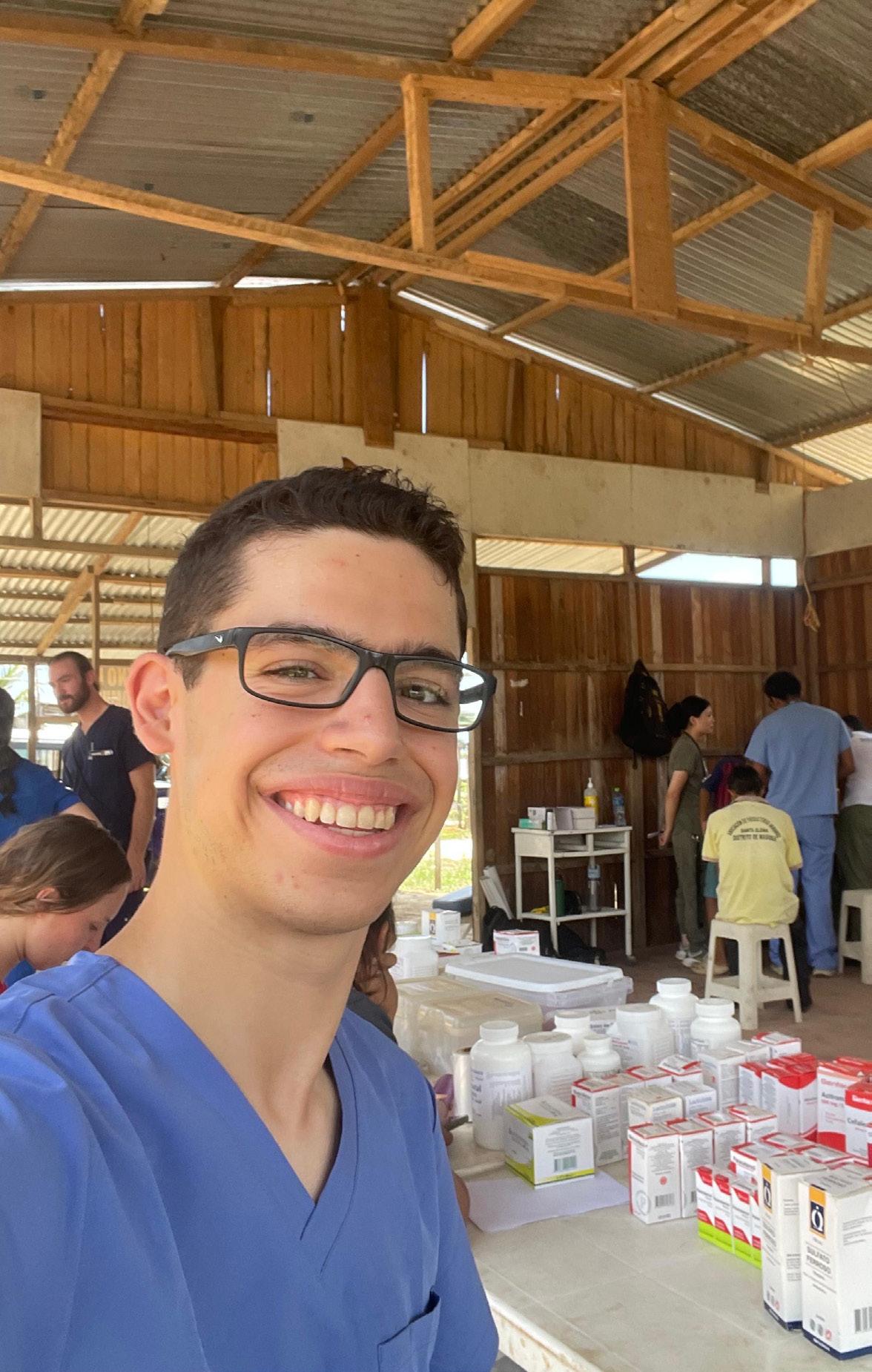
Loneliness isn’t a burden — It’s a beginning
Rhett Seitz Lifestyle Editor
Recently, I started listening to a YouTuber named HealthyGamerGG. The creator, Dr. Alok Kanojia, better known as Dr. K, makes videos that break down modern mental health struggles in plain language. I recommend checking him out.
Kanojia’s own story reads like the plot twist no one saw coming. After failing out of school because he spent too much time gaming, he spent seven years in India training as a monk. Then he returned to the United States, finished medical school and became a psychiatrist. One of his videos recently caught my attention. Its title, “Loneliness Is Awesome Actually,” initially felt sarcastic, but the more I listened, the more it made sense.
Dr. K argued that loneliness doesn’t have to be an emotional sinkhole. Instead, it can be a space where ideas flourish, self-awareness deepens and new possibilities emerge. It was a perspective I had never really considered.
Over the past few years, loneliness has gone from a quiet personal struggle to a national talking point. In 2023, Surgeon General Vivek Murthy released a report titled “Our Epidemic of Loneliness and Isolation,” declaring widespread social disconnection a serious public health issue. He compared its effects to smoking, citing increased risks of heart disease, dementia, stroke, depression, anxiety and premature death.
Young adults, especially, are reporting record-high levels
of feeling isolated. Murthy wrote, “Given the profound consequences of loneliness and isolation, we have an opportunity, and an obligation, to make the same investments in addressing social connection that we have made in addressing tobacco use, obesity and the addiction crisis.”
This raises an important question: While loneliness is harmful, what do we do with it when it shows up?
I’m not suggesting that loneliness is good. It isn’t. Humans are made for community, conversation and connection. We aren’t meant to be alone forever. After all, God in the beginning said to Adam that it is not good for man to be alone (Genesis 2:18). However, while being isolated can be hurtful, being alone can also open a door that most of us never walk through. For many of us, life moves so fast, especially in college, that we rarely slow down long enough to think deeply about anything. We have technology in our pockets, deadlines on our calendars and noise in the background almost every hour of the day.
Being alone, even briefly, forces us to sit with our own minds. That alone can spark ideas, clarity and creativity that constant company can’t always give.
If you’re going through a lonely season, here are a few ways to use that time rather than fear it:
1. Give yourself intentional alone time.
Maybe that looks like a quiet Friday evening or a peaceful Sabbath afternoon with no
agenda. Use that pocket of stillness to think, pray or work on something you’ve been avoiding or dreaming about.
2. Remember that loneliness is temporary—and you are not forgotten
The feeling of being alone often lies to us. It tells us that this moment will last forever. It won’t. Even more, for those who believe, there’s comfort in knowing we have a God who never leaves us abandoned.
Seasons shift. Loneliness fades. Purpose returns.
Take comfort in the fact that you are never truly alone, as God Himself is always with us. If you ever worry about dying
alone or being alone when we are older, which a lot of people fear, just know that we can look forward to Heaven, where we will have plenty of company. After watching Dr. K’s video, my perspective on loneliness changed. I used to treat it as a red flag, a sign that something was wrong with me. I thought I had to be at every social event and around people constantly. Now, I see the solitary periods as windows of focus, as chances to work on the things I never make time for when life is loud.
And if loneliness ever becomes heavy, we don’t have to carry that weight alone. Our campus has counselors,
chaplains and mental health staff whose entire job is to support students during these hard times. If you ever feel alone, please don’t hesitate to visit the Counseling Service to speak with someone. Explore other avenues, as well, such as joining a life group, talking to professors and reaching out to old friends from the past. There is hope.
Loneliness may feel like a closed door, but it can also be the quiet room where God rebuilds us. Sometimes the most meaningful growth happens in the silence we once tried to avoid.


Created by Nyah Jackson

CHATTER
9:00 pm Freshman Pre-Registration (23 Earned Hours) @ Online MyAccess

• Payday: Salary
• Payday: Hourly/Students
• 5:35 pm Sunset
• 6:30 pm Vespers: Manny Gomez @ Collegedale Church of Seventh-day Adventists
7:30 pm AfterGlow @ Collegedale Church of Seventh-day Adventists
8:30 pm Vespers: Manny Gomez @ Collegedale Church of Seventh-day Adventists

• Nothing Scheduled

— 13
Preview Southern (November 13 - 14)
Symphony Orchestra Tour (November 13 - 15) Gymnastics Clinic: Acrofest (November 13 - 15) @ Iles P.E. Center
• 11:00 am Convocation: Presidential Physician, Jeffrey Kuhlman @ Collegedale Church of Seventh-day Adventists

Intramural Schedule: Fri
Disc Golf
12:00 pm
- Innova our heads vs Chain Reaction (Men’s A)
12:20 pm
- Midrange Crisis vs The Mulligans (Men’s A)
12:40 pm
• 3:30 pm Graduate Curriculum Committee @ Wright Hall Robert Merchant Room
— 15
• 5:00 pm Evensong: Deep 6 @ Collegedale Church of Seventh-day Adventists


Last Day To Order Regalia For Decem-
— 17 Friday — 14 Sunday — 16 Tuesday — 18
6:00 pm Tornado
7:30 pm Concert: Eugene A. Anderson Organ Series @ Collegedale Church of Seventh-day Adventists
ber Graduation Online Registration For W26 Opens For New/Transfer Students @ Online MyAccess
• 3:30 pm Undergraduate Curriculum Committee @ Wright Hall Robert Merchant Room
• 7:00 pm Archaeology Museum Lecture: James Fraser @ Lynn Wood Chapel
- The Hyzer Heroes vs UFO’s (Men’s A)
Intramural Schedule: Sun
Floor Hockey
5:00 pm
- Old School vs Biscuit blasters (Men’s)
- Pucker Up vs queenies (Women’s)
6:00 pm
- The Mountie Patrol vs Seal team sticks (Men’s)
- Stick Boyz vs Wranglers (Men’s)
7:00 pm
- Stick Boyz vs Stick Attack (Men’s)
- Shalom Yahweh vs Frozen Biscuits (Men’s)
Tennis: Doubles
6:00 pm
- R Lopez vs R Martinez (Men’s A)
- P suvacarov vs C Lee (Men’s A)
Become an advanced practice nurse and earn a doctor of nursing practice at the same time.
The BSN to DNP program mentors bachelor’s degree-level graduates as they gain necessary RN experience through an advanced nursing practice emphasis of their choice.
Options include:
• DNP/MBA
• Lifestyle Medicine
• Nurse Educator
• Nurse Practitioner (emphases include Acute Care–Adult/Gerontology, Primary Care–Adult/Gerontology, Family, and Psychiatric Mental Health)
Call or visit online to find out how to get started.

BSN DEGREE TO DNP





